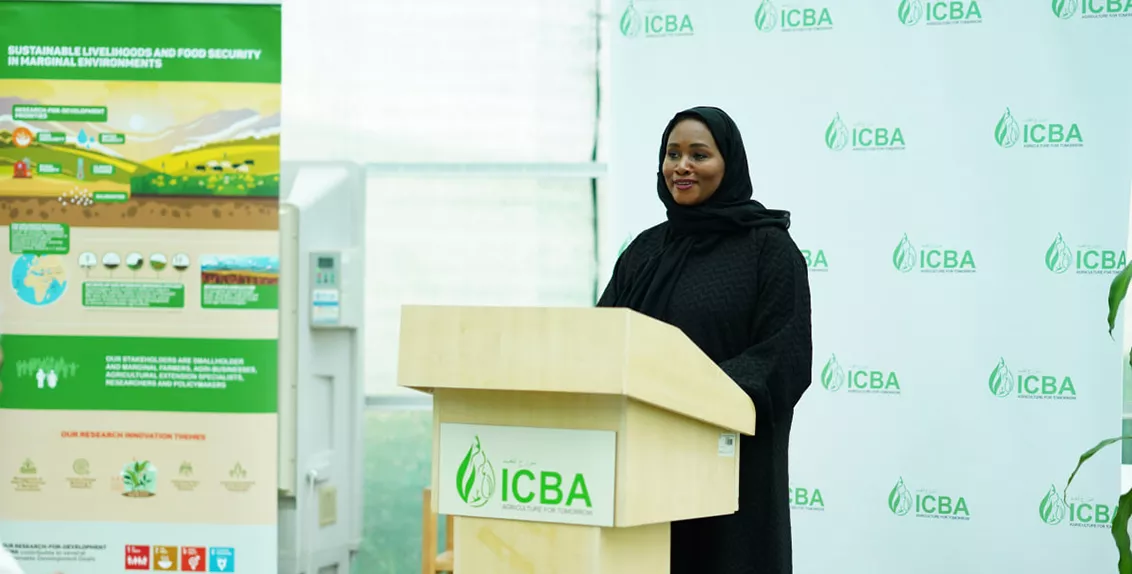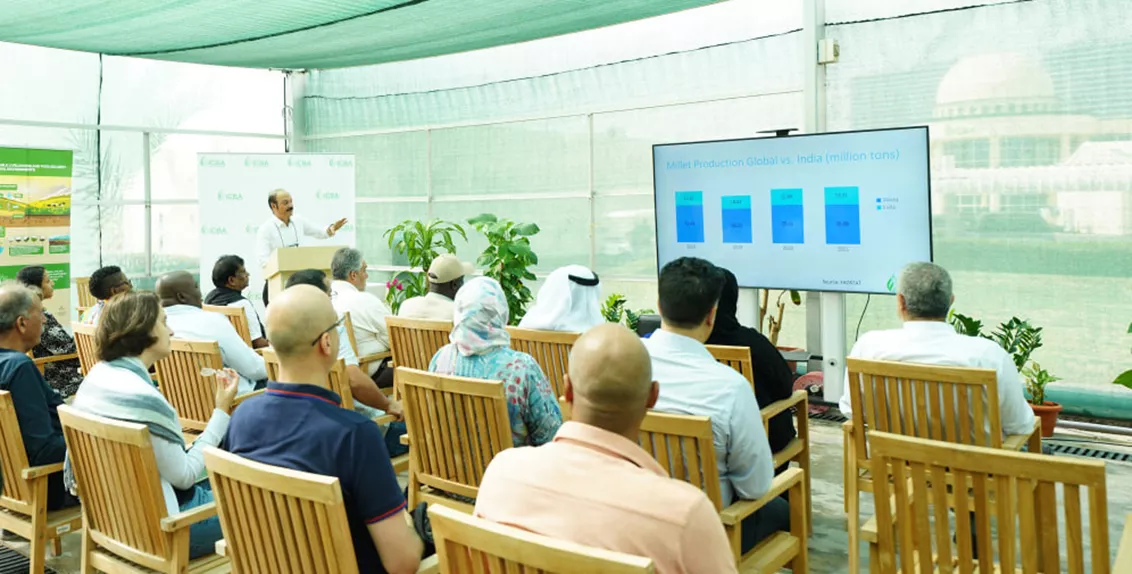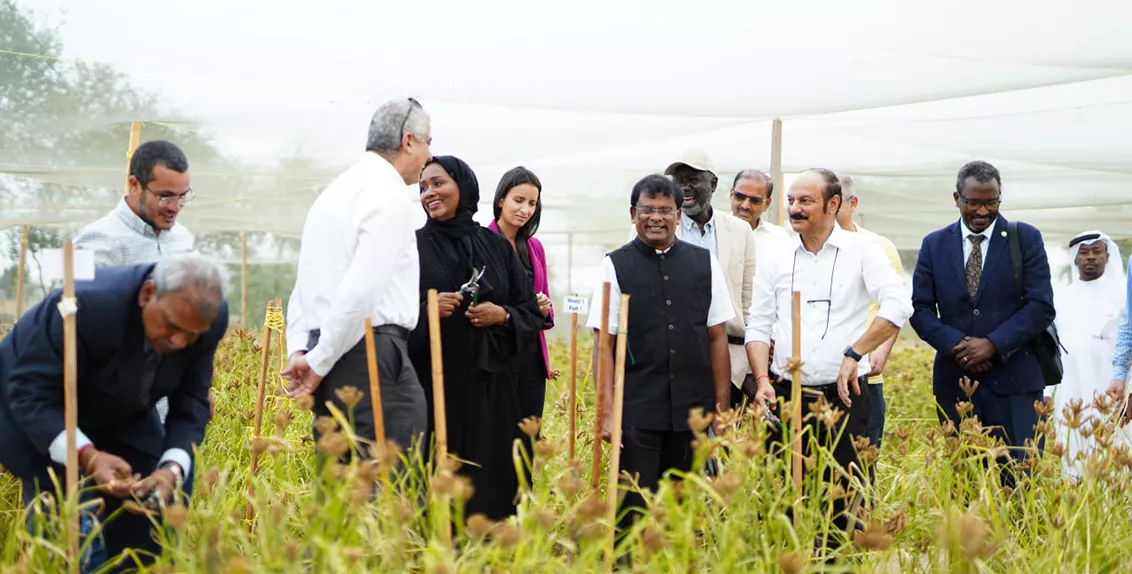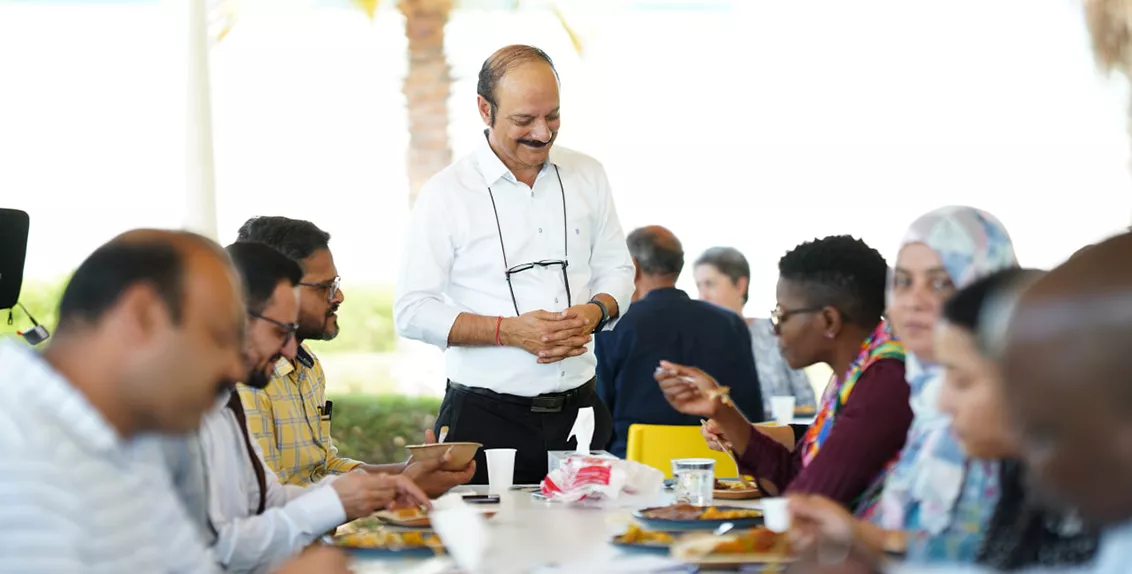-

Welcoming participants, Dr. Tarifa Alzaabi, Director General of ICBA, said: “Neglected and underutilized crops like millets can become more than just a healthy food in local diets and serve as a powerful resource in the climate change adaption toolkit. Through its research, ICBA strives to promote climate-resilient crops to enhance and sustain agri-food systems in marginal environments.”
-

During his presentation, Dr. R. K. Singh, Program Leader on Crop Diversification and Genetics at ICBA, highlighted: “While the previous research at ICBA focused primarily on pearl millet, in late 2020 our scientists began studies on minor millets as they are better adapted to arid and saline conditions under climate change. They have a double advantage as they are more stress-resistant and nutrient-dense. Currently, we have ongoing trials on pearl millet, finger millet, foxtail millet, and proso millet under varying water salinity and irrigation regimes.”
-

The event was also attended by senior representatives from the Food and Agriculture Organization of the United Nations (FAO); the International Center for Agricultural Research in the Dry Areas (ICARDA); and Zayed University who had a chance to experience the farm-to-fork approach as they harvested some millets in the field and later tasted different millet-based dishes.
-

Held on 21 March 2023, the event was the first of a series of scientific talks and activities planned for 2023 under the theme of “Climate-resilient Crops of Tomorrow”.
ICBA hosts open day to raise awareness, showcase research on millets
21 March 2023
Climate change poses major risks to future global food security and nutrition. Drought and other weather extremes and environmental factors exacerbated by climate change are forecast to impact agriculture and reduce yields of staple crops such as wheat, rice, and maize.